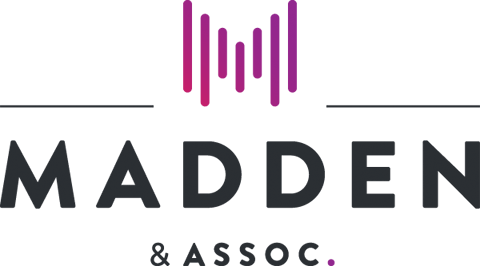When World Mental Health Day came around on October 10, its significance took on greater importance this year perhaps more so than other times.
Back in July, the Mentally Healthy 2020 survey found that the media, marketing and creative industry’s mental health has not improved since their 2018 inaugural study, with 56% of the more than 1,500 respondents displaying mild to severe symptoms of depression, and 52% symptoms of anxiety.
Unfortunately, marketing and PR agencies are notorious for employee burn out and in times such as these, with the implications of Covid-19 threatening job security and further increasing people’s anxiety, it seems timely to raise awareness and speak about the mental health within our own industry.
What I found most interesting about the Mentally Healthy survey were that the results clearly showed that people felt that positive change around mental health within the workplace started with empathetic, educated leaders who lead by example rather than more superficial programs like free yoga. When I took some time to reflect on this, I found it to be absolutely true.
Although a free yoga class is great, if your workload is so high you’re thinking about your to-do list in child’s pose or if you think that your manager is going to be passive aggressive because you’ve taken a break when you could have been hitting those billable hours targets, you’re in a catch 22, and probably very stressed out.
However, when your team has a culture that understands that balance and flexibility is crucial to workplace mental health and you have leaders that lead by example and promote simple things such as encouraging team members to take a proper lunch break or go out for that lunchtime run, it can be invaluable to your overall professional wellbeing and result in far better results for clients, as you are able to be your best self.
You may or may not be aware that October is National Mental Health month in Australia and this year the theme is “mental health matters”, with one of the objectives to promote mental health. To me this means starting a conversation, with myself and those around me so who better to talk to than my wonderful colleagues at Madden. Here’s what they had to say on the topic..
Bruce, as a business owner navigating a global pandemic, and transitioning your team from the office to home, there have been many points during the year that were highly stressful. Looking back, how did you look after your mental wellbeing during this period?
Great question! I have created an informal network of trusted friends and associates – some quite senior business folk, others just people of integrity with wisdom. This informal bunch of really great people act as my own ‘advisory team’ and mentors. No matter how good a leader in business you may be (or think you are), everyone needs a helping hand, a wise head or a shoulder to lean on. As our firm took an unexpected bungee jump off the COVID-19 bridge in late March, I found connecting with those trusted souls highly beneficial. I also try hard to keep things in perspective and bring it all back to values: does my reaction reflect the firm’s and my own values? It is amazing how that simple rule can ease decision making and keep your mind on the positives and avoid a cycle of dwelling on the negative. It also helps to retrace your steps and apologise or fix the inevitable mistakes. We are only human after all. We also have some highly loyal clients who doubled down with us and produced some amazing results during this time; and a strong cohesive team that has each other’s back. That is priceless. From a practical sense; exercise, mindfulness, a huge dash of gratitude.
Agencies are notorious for employee ‘burn out’ and ‘churn’. Why is the mental wellbeing of your employees a high priority to you?
Comms professional like us don’t make widgets – we are a people business with enormous intellectual capital, intuition and a high work ethic to succeed. Our first priority is to maintain a healthy, transparent and supportive working environment conducive to our great people doing great work for great clients… and no bullshit. It really is a simple recipe to get the basics right that allows our people to flourish and call out if things get a bit off camber in the head space sense!
I then reached out to our account management team to ask: as busy communication professionals, how do you look after your mental health?
Carlotta Vittori, Account Director
Since we started working full time from home, I’ve had to make sure to carve out some time to myself and create a new routine so the personal and work lines weren’t crossing too much. Walking my dog Bacon in the morning while our little town is still waking up is a calming and meditative way for me to start the day fresh, before I make a cup of coffee and really get stuck into it. Those morning rituals and spending time in nature are essential to ensure I have set myself up with a positive and relaxed mindset, particularly ahead of those busy, meeting-filled days. Making the most of the flexibility our working arrangement has offered us, I also try to regularly set up a coffee or lunch catch up with friends when possible to keep that face to face interaction outside of home. Once I’m officially wrapped up at work, I love to switch off by either busting out a workout or some yoga to truly wind down for the day.
Amy Boyce, Senior Account Manager
Working in an industry that is fast paced, deadline driven and generally quite uncertain requires a lot of energy. Energy to give to your clients, to creative ideas for pitches or strategies and your colleagues – they call PR the people industry for a reason, and as such maintaining good mental health is imperative. As an avid (yet amateur) cyclist nothing beats rising with the sun and heading out on the roads for some ‘me’ time. Sometimes these rides are heart thumping tour de France worthy efforts and others can be a meditative poodle along the coast. Starting my day challenging my body and getting the endorphins flowing is essential to me bringing the best version of myself to the office or should I say home office.
I hate to sound repetitive but I also find taking a lunch break away from the computer is crucial to my productivity, sometimes this takes the form of a run around the park, a swim in the ocean or a stroll around the neighbourhood. This may feel like a luxury when it’s all engines firing and everyone needs something now and this is where the power of prioritising needs to be mastered. Sometimes stepping away for 30 mins or an hour gives you the perspective you need to deliver your best work and provide clients with your best self – something both you and your stakeholders deserve to experience.
Laura Cranley, Account Executive
While working from home, I have found it can be easy to get trapped in your ‘work zone’ (mentally and physically) when there isn’t a clear separation between work space and living space. Without this, sometimes it feel like you are never truly relaxed as the lines between work and home time become blurred, leading to stress and feeling constantly ‘on’. To avoid this, I have made a clear designated space for my work zone which I do not use at any other time. This helps signal to my brain when I am not working, and to de-stress and relax. I also find exercise is important to fit into your day, at least 2-3 times a week. It helps significantly in boosting my mood and helping me feel more energised, especially during weeks at work that feel more draining than others. Sometimes it can feel like you don’t have “enough time” in your day to fit in exercise, but even 30 minutes in the morning or afternoon really improves my mood and mental health.
Emma Steiner, Account Coordinator
I look after my mental health by firstly ensuring I get a good night’s sleep and a daily walk. Now, with working from home, I also find it is important to have a separation of space between work and home life. For me, this means shutting everything off once work has finished and enjoying some down time in another room. During the day, spending lunch times outside in the sun also helps. And of course, keeping social and getting out of the house with friends or family in the evenings and on weekends.
We hope that this blog encourages you to start a conversation in your workplace and support your colleagues in looking after their wellbeing.
If you or someone you care about needs support, please contact:
Lifeline 13 11 14
Suicide Call Back Service 1300 659 467
MensLine Australia 1300 78 99 78
Beyond Blue 1300 22 4636

